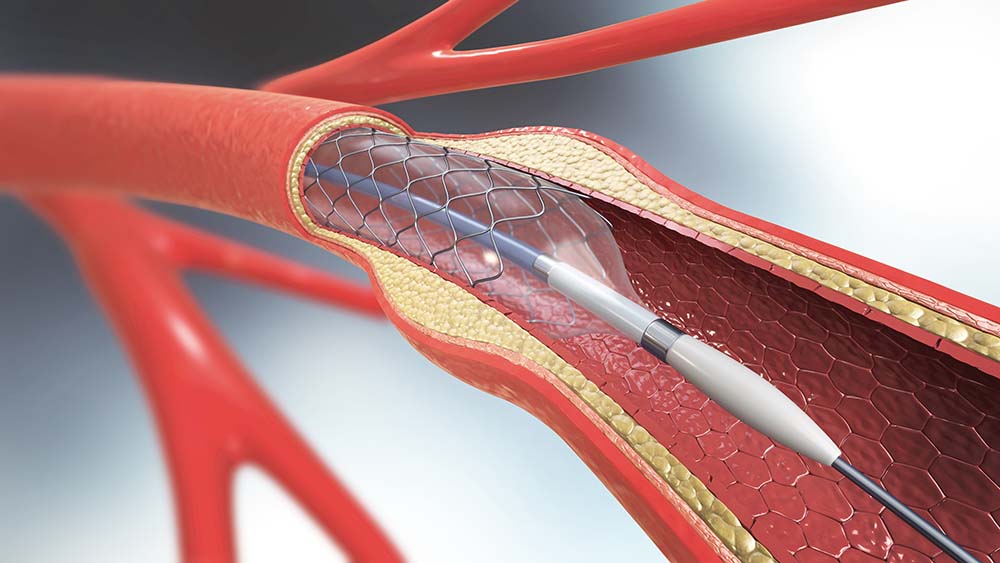
perKunSt: Development of biodegradable plastic stents

Coronary heart disease (CHD) is one of the most common heart diseases worldwide. In Germany alone, almost 6 million people are affected. One cause is arteriosclerosis, a pathological buildup of fats in the blood vessels. They narrow and clog the coronary arteries and lead to a circulatory disorder of the heart.
One option to treat arteriosclerosis is to implant stents in the affected vessels. Despite high demands on reliability and material of such coronary stents, complications such as re-narrowing of the blood vessel (restenosis), stent thrombosis or chronic immune reactions can occur after implantation. Resorbable stents made of biodegradable polymers are considered a promising approach to circumvent these drawbacks, but need more intensive research. This includes the evaluation of innovative stent materials and geometries.
The »perKunSt« research project therefore aims at developing personalized stents based on biodegradable plastics. To this end, methods and processes for modifying the stent geometry as well as coating technologies for targeted drug release are being researched. Together with InnoRa, a radiology service provider and Organical CAD/CAM, a medical device manufacturer the research team at Fraunhofer IPK is essentially pursuing two goals:
- development of a 3D printer with an innovative workpiece clamping system for the production of novel plastic stent designs,
- evaluation and application of biodegradable plastics for the fabrication of resorbable stents with degradation gradients.
Although the project partners are focusing on the production of resorbable stents, the R&D results are also intended to be transferable to other implants. The combination of innovative, biocompatible plastics and their processing in a future 3D printing system for the production of filigree structures with defined degradation times can be used in many applications in medical technology and the pharmaceutical industry.
 Fraunhofer Institute for Production Systems and Design Technology
Fraunhofer Institute for Production Systems and Design Technology